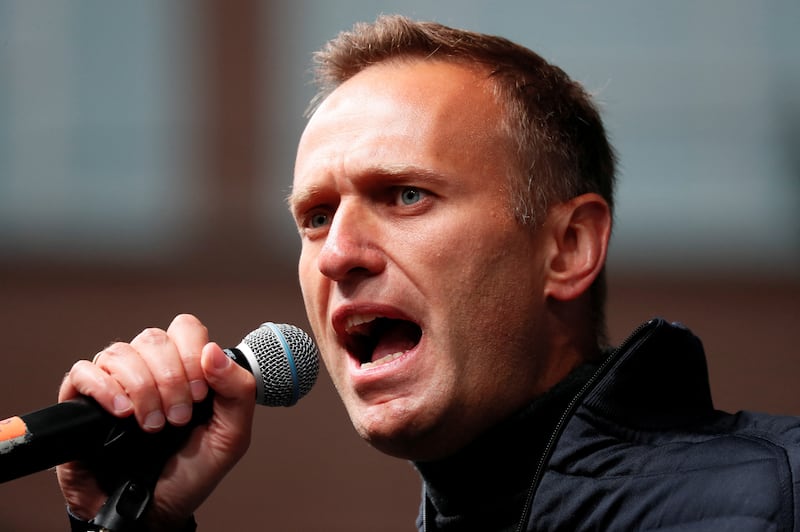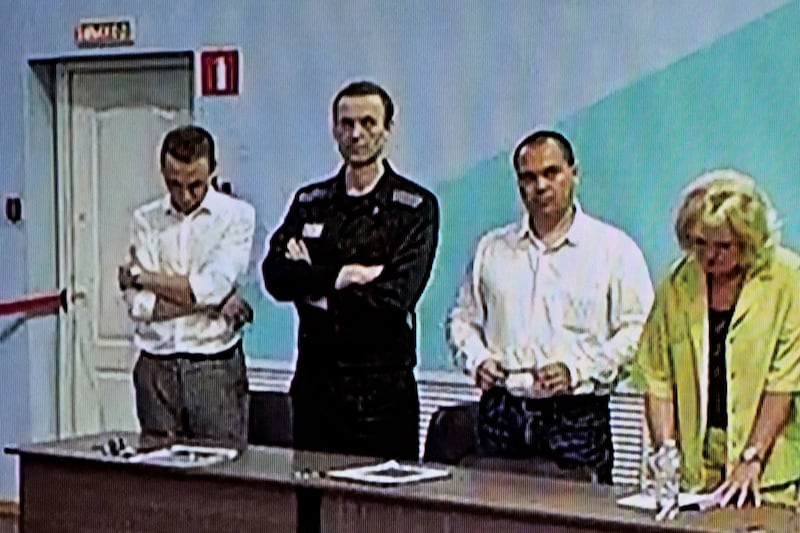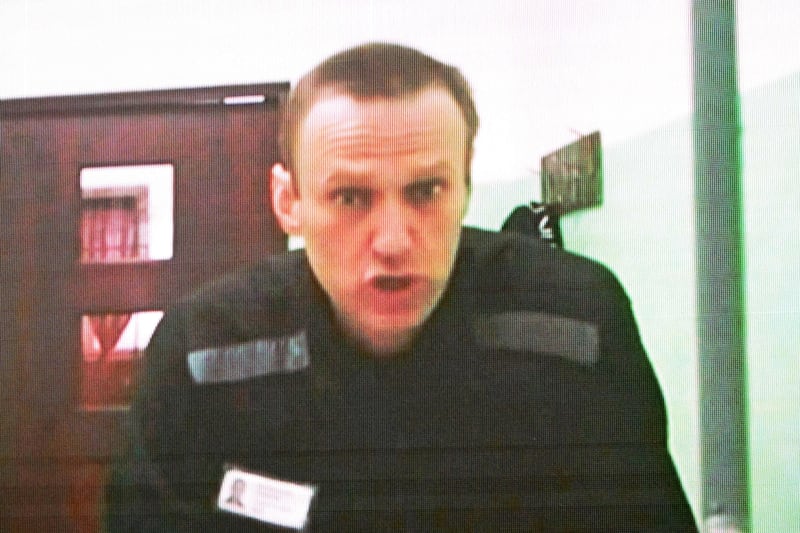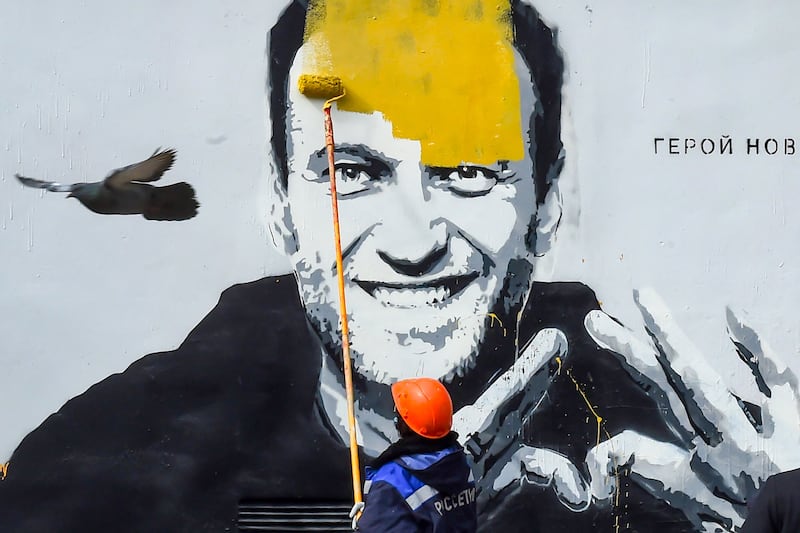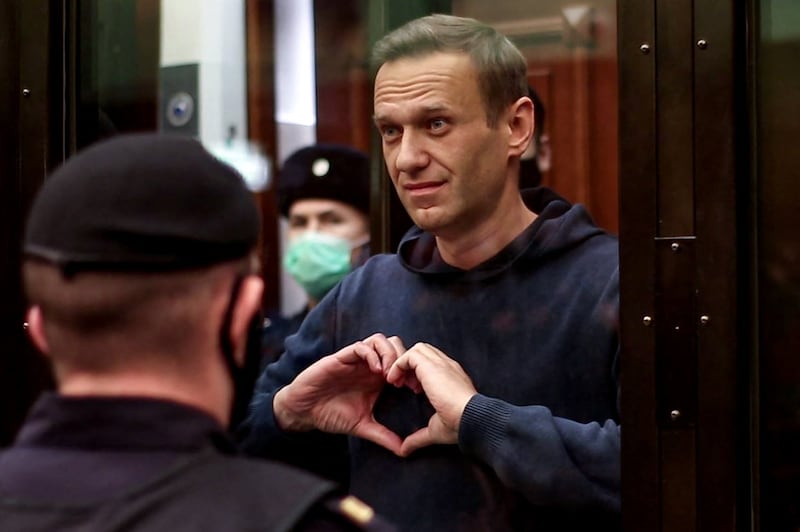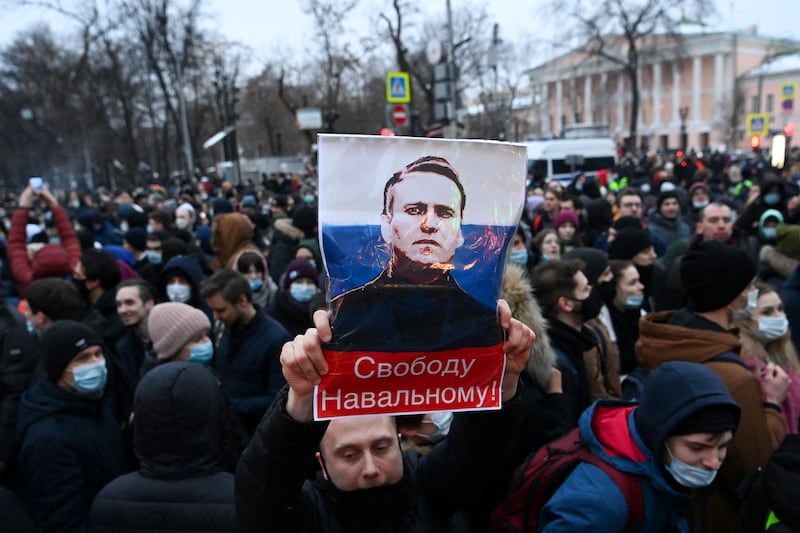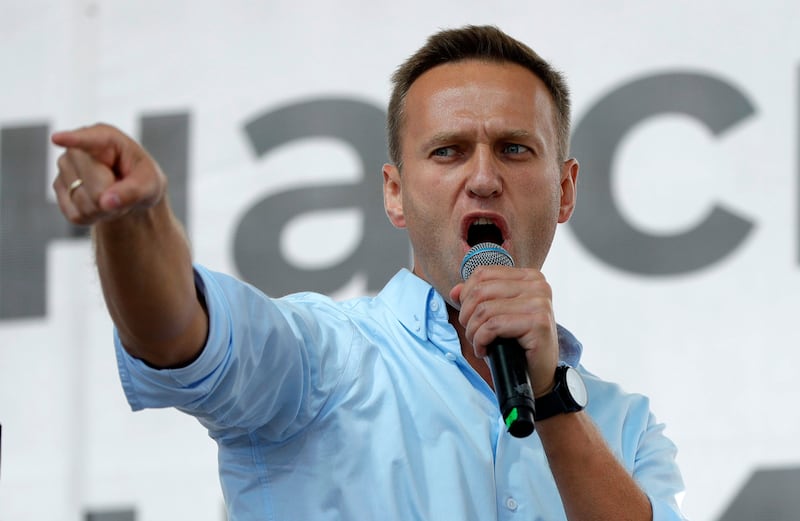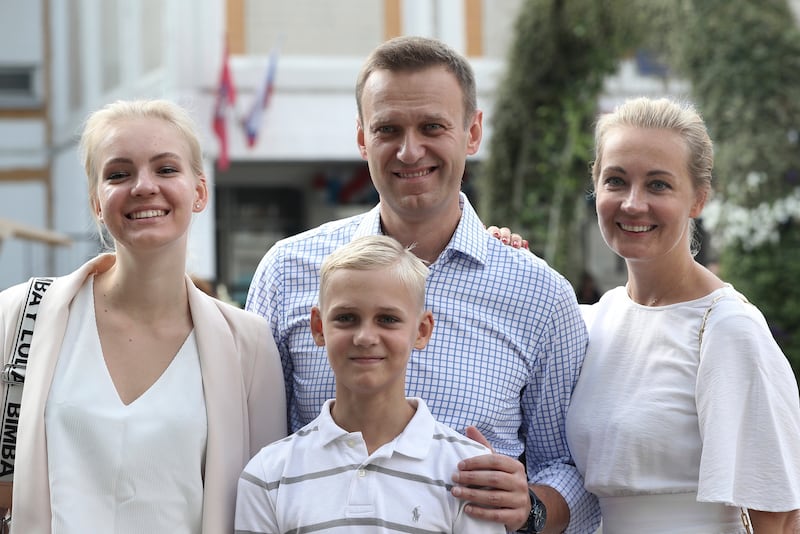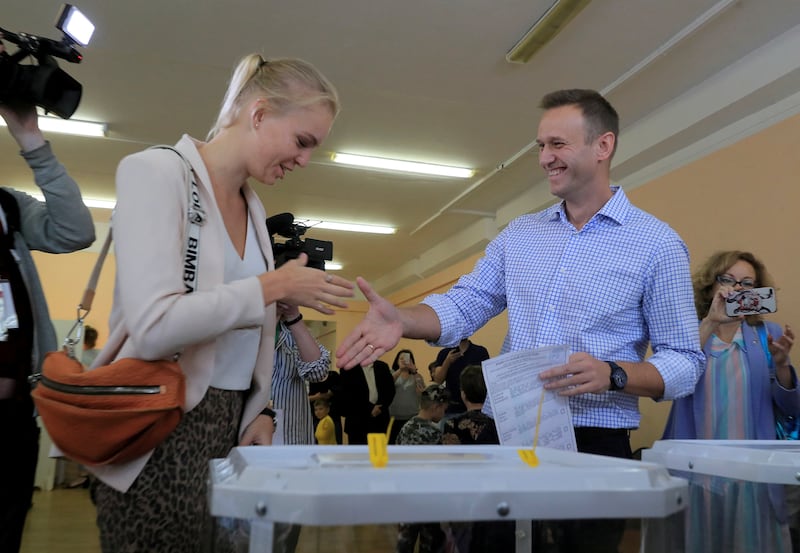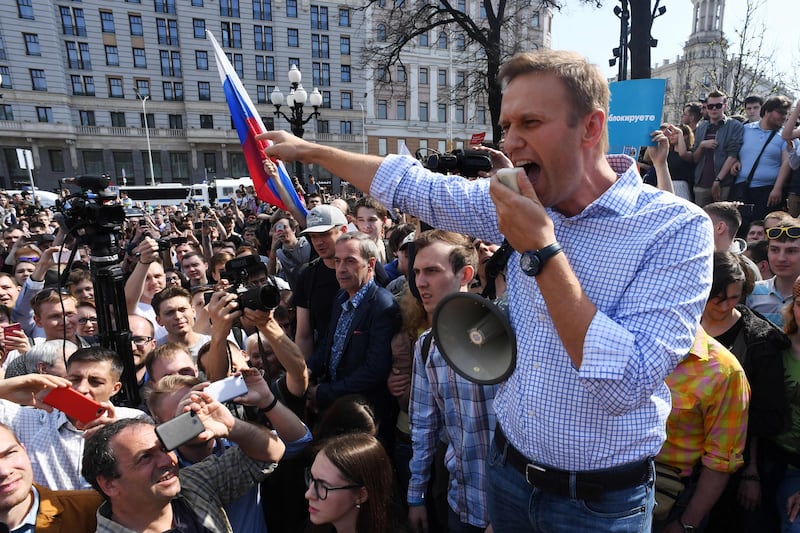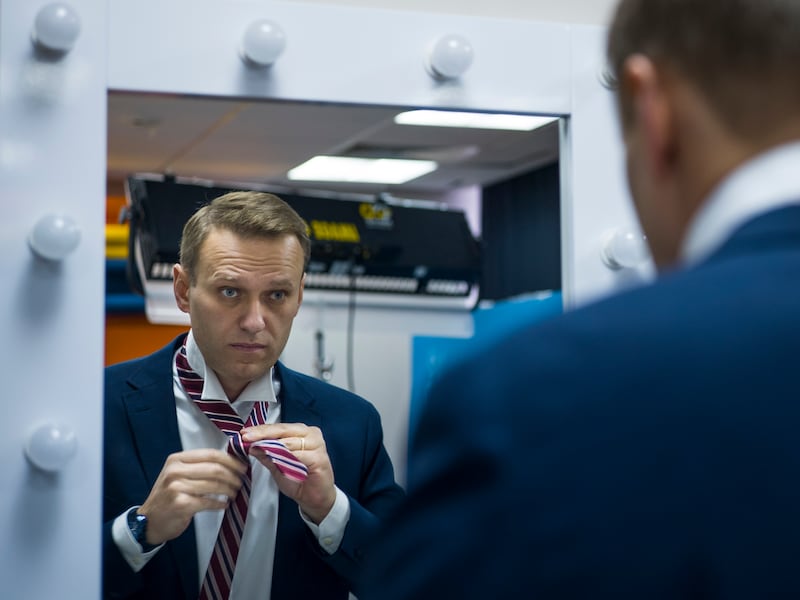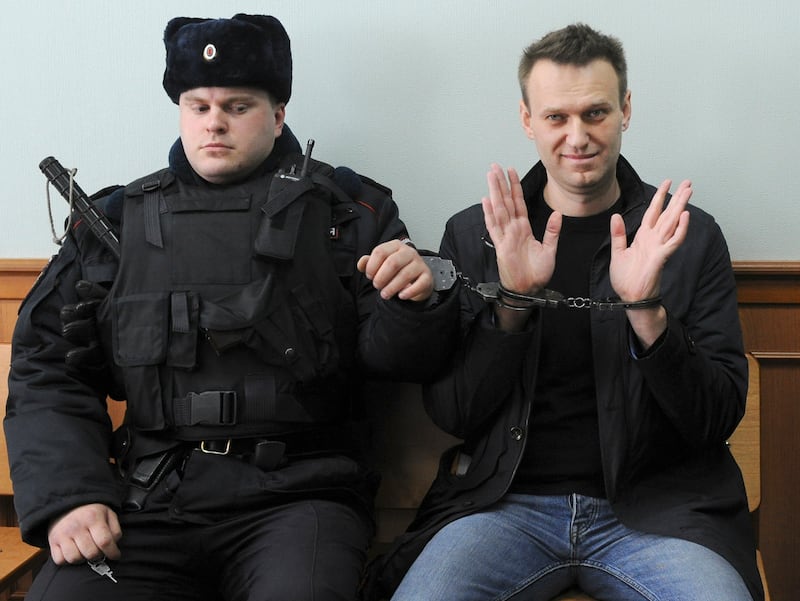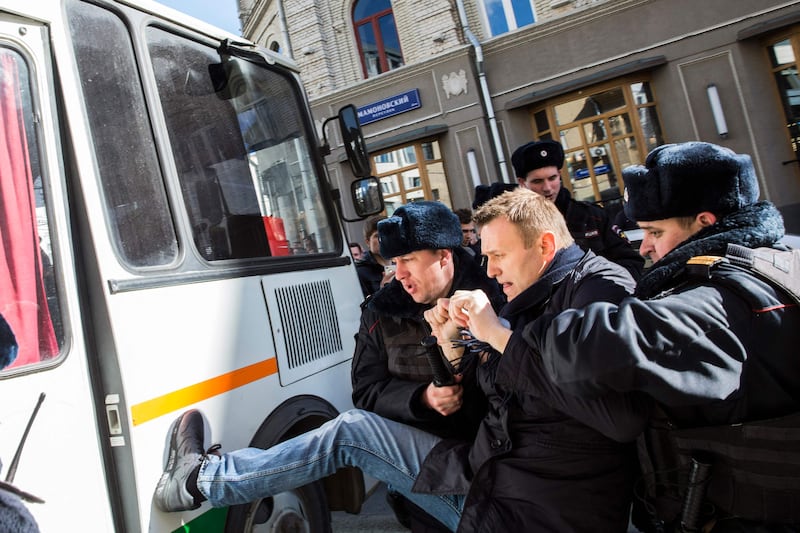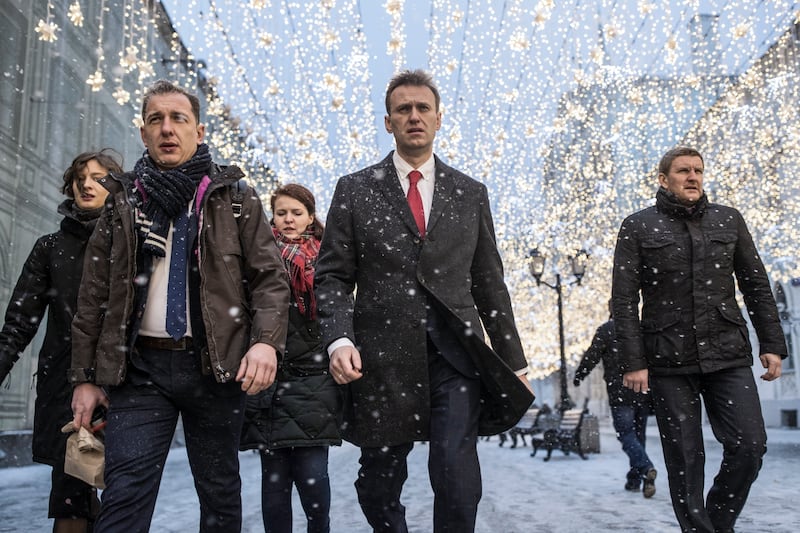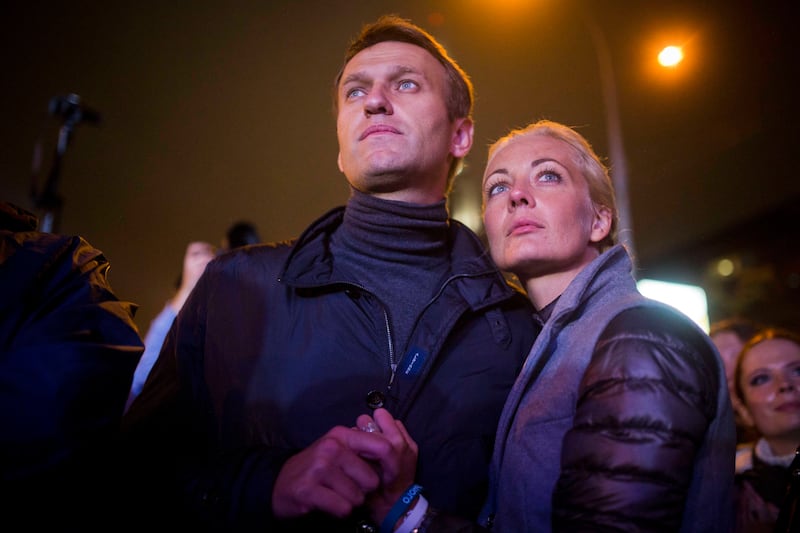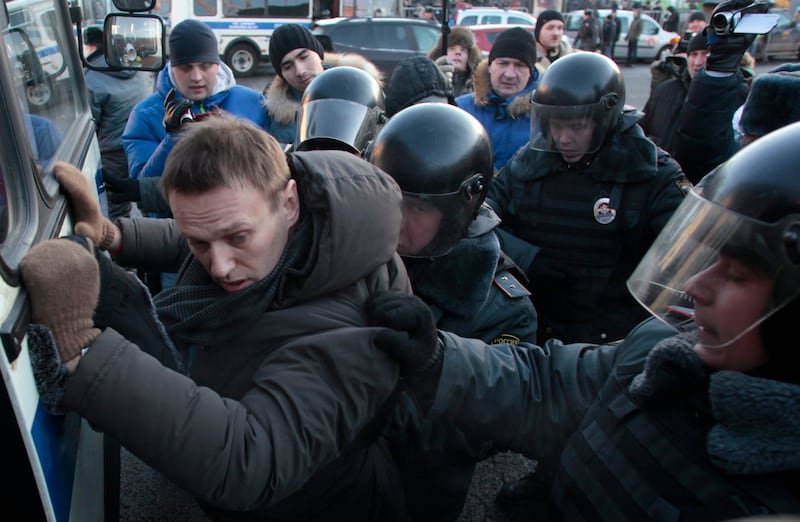EU member states are planning to impose new sanctions on Russia over the death of jailed Kremlin critic Alexei Navalny, as his wife on Monday attended a meeting of the bloc's foreign ministers to discuss a response.
German Foreign Minister Annalena Baerbock said her country would be among those calling for a new round of sanctions against Moscow, suggesting the package could be tentatively approved on Wednesday if Hungary gives its backing.
Mr Navalny died on Friday, a week before the second anniversary of Russia's full-scale invasion of Ukraine.
Russian authorities said he had collapsed after a walk at the Polar Wolf penal colony, where he was serving a 19-year sentence after being poisoned with a nerve agent in Siberia in 2020.
Russian investigators on Monday said they have yet to determine the official cause of death.
His wife Yulia Navalnaya vowed to continue the opposition leader's fight.
In a nine-minute video on her X account, Ms Navalnaya, 47, said: "Vladimir Putin killed my husband. By killing Alexei, Putin killed half of me – half of my heart and half of my soul.
"But I still have the other half and it tells me that I have no right to give up. I will continue the work of Alexei Navalny, continue to fight for our country."
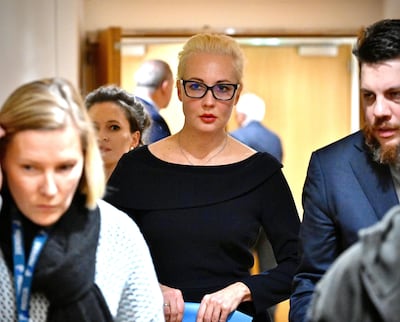
Speaking after meeting Ms Navalnaya on Monday, EU foreign affairs chief Josep Borrell vowed to hold Mr Putin accountable.
The EU sanctions package will be the 13th the bloc has approved since Moscow invaded Ukraine on February 24, 2022.
"We have seen the brutal force with which the Russian President represses his own citizens who take to the streets to demonstrate for freedom or write about it in newspapers," Ms Baerbock said.
"We will propose new sanctions in light of the death of Alexei Navalny."
In the House of Commons on Monday, Leo Docherty, undersecretary of state at the Foreign, Commonwealth and Development Office, said he was “appalled” at the news of Mr Navalny’s death and sent “deepest condolences” to his family, friends and supporters.
“Mr Navalny dedicated his life with great bravery to exposing corruption,” Mr Docherty told the House of Commons.
“He called for free and fair politics and held the Kremlin to account. He was an inspiration to millions and many Russians felt he gave them a voice."
He said Mr Navalny was “a man of huge courage and iron will”, and “even from his remote prison cell he persistently advocated for the rights of Russian people”.
“His death must be investigated fully and transparently," Mr Docherty said.
“The Russian authorities must urgently confirm the location of Mr Navalny's body to his family and allow them access to it."
“On Friday, the Foreign, Commonwealth and Development Office summoned the Russian ambassador to express our outrage about Mr Navalny's death and made clear that we hold the Russian authorities fully responsible.”
On the sanctions, he said: “We are focused in a laser-light way on the economic impact of our sanctions.
“G7 and international actions into the sanctions and the way that they have impacted the ability for Putin to fund the war have been very, very significant, to the tune of billions.
“We continue to work with G7 allies to look at all legal routes to ensuring that assets that are frozen might be used to help with the reconstruction effort by those who deserve them.”
British Foreign Secretary David Cameron said he expected the UK and G7 allies to impose new sanctions on Russians involved in Mr Navalny’s death.
Hungary is the only EU state yet to approve the latest package of restrictions against nearly 200 organisations and people, proposed before Mr Navalny's death.
The measures would freeze the assets of nearly 200 companies and people – including some outside Russia – considered to be involved in the war, or in bypassing existing trade restrictions.
Foreign Secretary David Cameron had already indicated there could be new sanctions on Russian officials, as questions for Russian authorities over how Mr Navalny died remain unanswered, with a mounting chorus of western voices holding Mr Putin responsible.
On Monday, Downing Street would not comment on possible future sanctions but paid tribute to Mr Navalny and called for a full investigation.
Prime Minister Rishi Sunak's official spokesman said of Mr Navalny: "It is very clear that the Russian authorities saw him as a threat and that is why they imprisoned him on fabricated charges.
"The fact that the FSB [Russia's federal security service] poisoned him with a banned nerve agent and then sent him to an Arctic penal colony.
"His death must be fully investigated and all of those in the Russian regime must be held to account."
Mr Navalny's team accused authorities of deliberately stalling the release of the body.
Mr Navalny, 47, a former lawyer, rose to prominence campaigning against corruption in Mr Putin's Russia.
He was known for his fiery speeches at public protests and in courtrooms, his vocal presence on social media and his team's elaborate video investigations into state graft.
Mr Navalny had been jailed since January 2021, when he returned to Moscow to face certain arrest after recuperating in Germany from the nerve agent poisoning he blamed on the Kremlin.
He was then convicted three times over – but claimed each case was politically motivated – and received a sentence of 19 years on charges of extremism.
After the last verdict, Mr Navalny said he understood he was “serving a life sentence, which is measured by the length of my life or the lifespan of this regime”.
In a documentary filmed before he returned to Russia, he was asked what message he wanted to leave to the Russian people should he die or be killed.
“Don't give up. You mustn't, you can't give up,” Mr Navalny said.
“All it takes for evil to triumph is for good people to do nothing. Therefore, don't do nothing.”
Police detained at least 400 people at the weekend as they tried to lay flowers at makeshift memorials to Mr Navalny in Moscow and other cities.
They came out despite the atmosphere of fear created by an intensifying Kremlin crackdown on protests since Mr Putin ordered the invasion of Ukraine.
